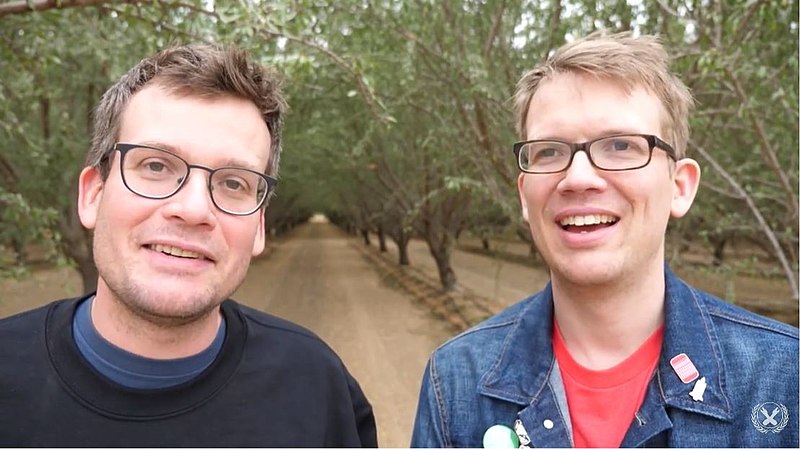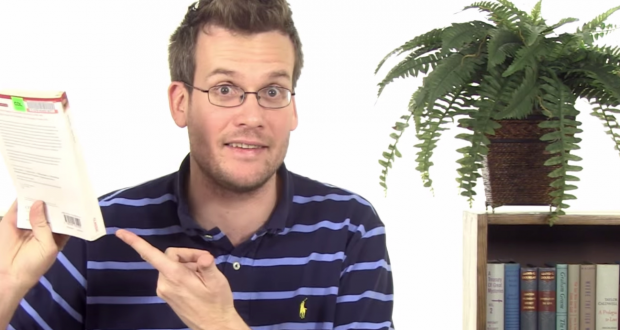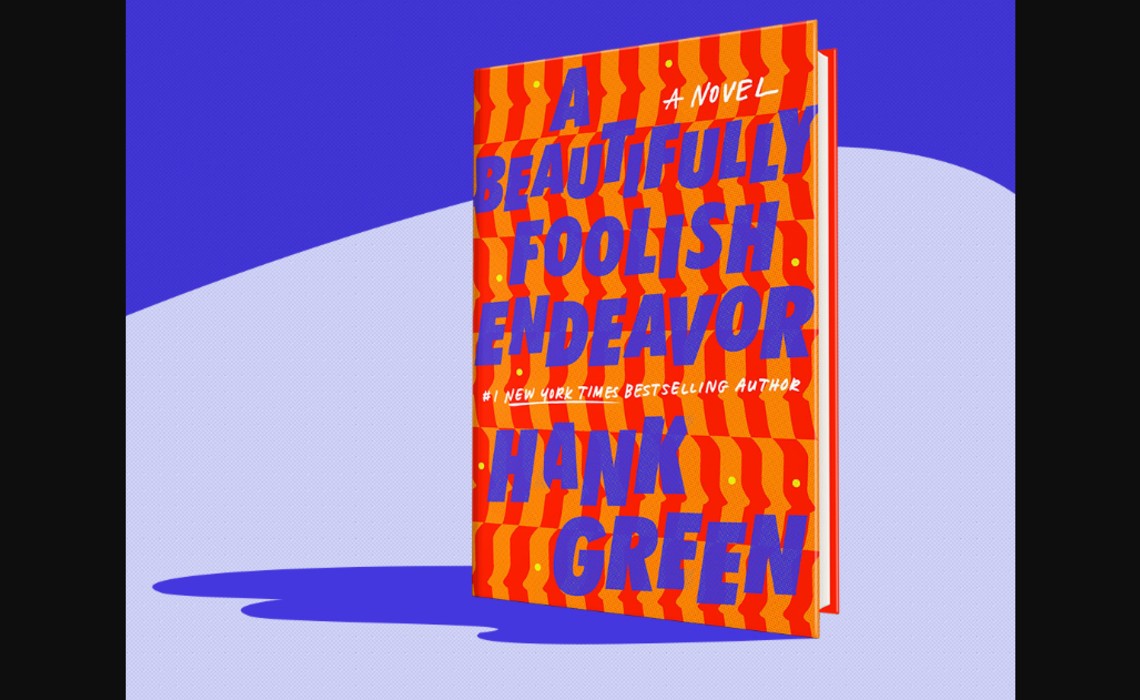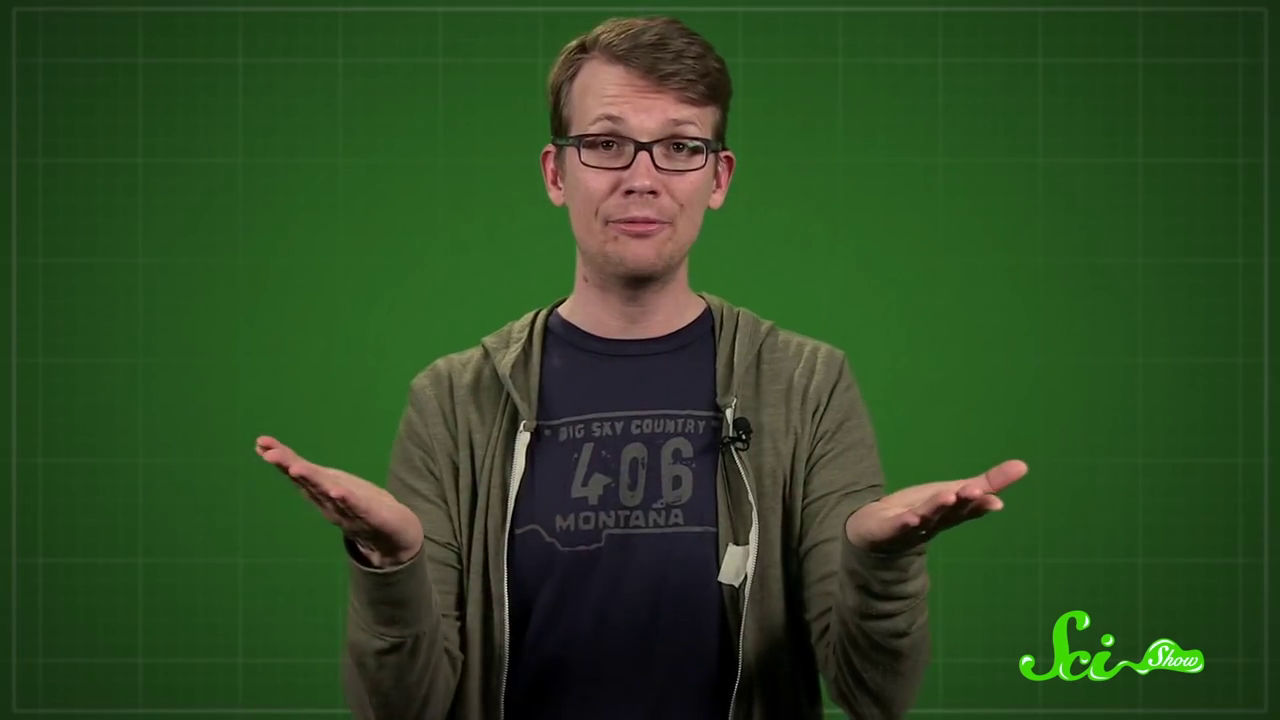January 9, 2020 | By Julie Garisto

Meet the founders of the Crash Course educational series. . .
the Complexly suite of video series and podcasts, “The more we understand, the better we get at being humans”. . . VidCon, PBS Art Assignment, The SciShow and the Project for Awesome site, where “thousands of people post videos talking about and advocating for charities that decrease the overall level of world suck.”
. . .
Brothers, podcasters, intrepid educators, authors and lovable goofballs Hank and John Green have taken over the Internet and are now commandeering the analog sphere with their Dear Hank and John podcast.
Those uninitiated in the cult of Green may have seen John’s popular YA novels on bookstore shelves, Turtles All the Way Down, The Fault in Our Stars and Paper Towns (the latter two adapted to film). He and Hank, author of No. 1 New York Times bestselling debut novel, An Absolutely Remarkable Thing and the forthcoming sequel, drew inspiration from the experimental humor and irreverent insights of Ze Frank during Youtube’s early years.
The brothers’ web dominion goes back to the middle of last decade. It all started as an effort to stay in touch and simultaneously co-host a Youtube channel with a novel, personalized approach. Musician and science enthusiast Hank lived in Missoula, Montana, and started a website about green technology. Liberal arts aficionado John resided on New York’s Upper West Side while wife Sarah Urist Green attended Columbia’s art history grad school program.

In their Vlogbrothers videos, they address each other (“Good morning Hank/John” with the signoff “See you Friday, Hank/John”). They also spoke to viewers and each other in their own special lightning-speed, tangential and gesticulation-fueled language, which over the years won over a massive fan base of “nerdfighters.”
They also came up with the acronym and catchphrase DFTBA “Don’t Forget to Be Awesome.”
While they have divergent areas of interest and expression — John is more introspective and outwardly angsty than the uber-rational Hank — they both share a passion for education and philanthropy, two driving forces that led to them starting the Crash Course educational series (incidentally John is finishing up a fascinating semester of European History this month) plus the Complexly suite of video series and podcasts, VidCon, PBS Art Assignment (John and wife Sarah), The SciShow (Hank, Michael Aranda and Olivia Gordon) and the Project for Awesome site, where “thousands of people post videos talking about and advocating for charities that decrease the overall level of world suck.”
During all of their videos and podcasts, the brothers talk openly about their own issues to raise awareness about conditions too often stigmatized or avoided. Green has talked about his battle with depression, anxiety and OCD and Hank has educated his fans on ulcerative colitis.
The Greens’ Minotour will function in tandem with John Green’s campaign to raise $6.5 million over the next five years to the Sierra Leone branch of Partners in Health (PIH), an organization that will provide a maternity ward, supplies to poor communities and collaboration with local governments to establish a long-term healthcare infrastructure. All sales proceeds from the tour go toward this effort.
Meanwhile, Hank took time from his crazy schedule to answer questions for Creative Pinellas’ Arts Coast Journal. He shares that he and his brother grew up in nearby Orlando, and he’s an Eckerd College alum. Before earning his degree in biochemistry, Hank lived in the ‘Burg for a spell and has fond memories that may or may not include trespassing on private property.

Creative Pinellas: What are some cherished central Florida places from your childhood that have endured? Anything different or new that has struck you as bittersweet or exciting?
Hank Green: Orlando has changed completely since we left, though a couple of the swampy areas still bring me right back to my childhood
Congrats on your Project for Awesome campaign! It’s truly impressive how you continue to raise money for people who need help most, like earmarking sales on this tour for children and families in Sierra Leone on this tour. There must be a ton of administration going into these donation efforts? How do you guys keep it running and stay on top of your other work?
We basically convert our team at Complexly (our educational media company) over to part-time Project for Awesome work for the whole week. And then a couple of our people are working on the P4A all throughout the year, making sure we schedule things and coordinate the fundraising rewards and matching donations.
It’s like managing any project, which is to say, not simple, but totally doable!
While we are on this “Just how do you do it all?” tip, I am curious about the production schedule of Crash Course, the artwork and animations. I’m that fan who pauses to read the punny, irreverent caption bubbles in the intro.
The work is broken out into teams. We have a writing team that produces content and is all reviewed by a subject matter expert (usually a professor.) That team sends ideas along to our graphics team, which is actually a separate company, Thought Cafe. They’re based in Toronto and they always add their own spice and ideas and jokes.
Those animations are then watched again by our expert editors to make sure no one messed anything up. Crash Course is especially hard because, when you’re making stuff for students, you really have to get everything right.
John Green’s work with the PBS-produced The Art Assignment offers delicious food for thought for our readers. Recent episodes include explorations of arts in pop culture such as the banana-Art Basel controversy and how Instagram is influencing contemporary visual art. How did the PBS partnership get started?
PBS approached us after seeing our work at Crash Course. We have a few different projects going with them right now. They saw the opportunity and the need for educational content in online video and have been great supporters of that entire community.
The Art Assignment is produced out of our Indianapolis office, so John oversees it. Also, it’s hosted by his wife, so he’s got a pretty deep interest! [Editor note: Sarah Green’s book on sparking the creative process with art assignments will be out this April.]
What are some avenues you recommend for people interested in merging video production with their poetry, prose or visual artworks? Is Patreon a good place to start?

When possible, we like to give an audience a really good idea of what they’re supporting before we launch a Patreon. The real hard part of online video is breaking through the noise. It’s possible, but it relies on a deep understanding both of human nature and of the YouTube platform. Also, you’ve got to have video-making skills. None of that is easy!
You each have been open about your health challenges but you maintain an enviable level of productivity, creativity and outreach. Are there any life hacks you could give to those out there beset by personal challenges?
It’s hard to really internalize self-appreciation when you aren’t doing the things that are most prized by society, or doing it in ways that are different. To the extent that we can choose what we appreciate about ourselves, and how we find meaning, we should choose better things. But I don’t want to pretend that that’s easy work, because we’re extremely social, and we hear every word culture whispers to us.
What is your reading and writing routine? Does staying busy keep your mind sharp and help you become better daily readers and writers, or do you need to take breaks to catch up on both?
I read every day, just in the cracks.
Writing really depends. A lot of writing is not writing. Some of that is research, but a HUGE amount is revision. I think writing and revising are vastly different skills and I can’t do one while I’m doing the other. I’m revising right now, which means I am not working on anything new and haven’t been for months. I have to actively avoid new ideas, actually, because I need to keep the current story really present and full in my mind.
Have your books been optioned yet?
No! I’ve been really reticent to work on any movie stuff at all until I’m done with the sequel.
Tell us about your past brushes with the Tampa Bay area, given that you grew up two hours from us — and, Hank, I read that you attended Eckerd College. Did you live here or telecommute?
I lived in St. Pete for all four of my college years, spending tons of time at Fort DeSoto beach and crashing the hot tubs at the Don CeSar. I met my wife at Eckerd and we’re coming back together. Hopefully, I’ll get to drop by and see some of my old professors!


